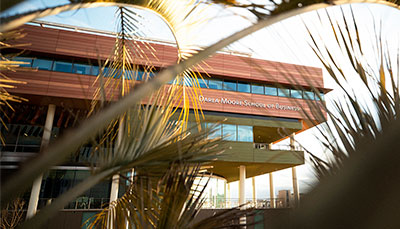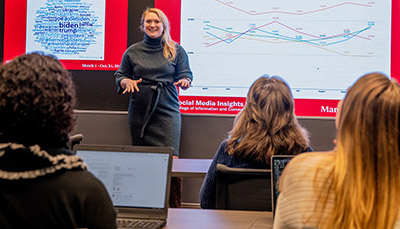Environmental Nanoscience and Risk, Certificate
Arnold School of Public Health
Enhance your professional credentials and gain a foundational knowledge in environmental nanoscience and risk in this 18-hour interdisciplinary certificate program.
Designed for professionals employed by agencies and organizations involved in the regulation and governance of nanoscience and nanotechnology, our program will enhance your expertise across disciplines with a solid understanding of environmental nanoscience and risk.
Program Highlights
-
Get Started
Gain foundational knowledge to address regulations around nanotechnology development and environmental health and safety.
-
Lab Skills
Enhance laboratory abilities and analytical techniques for environmental nanoscience research.
-
Research Center
Learn more through the Center for Environmental Nanoscience and Risk's state-of-the-art instrumentation for studying air, soil and water.
-
Notable Faculty
Learn from some of the nation’s leading researchers with a significant network in private industry and agencies.
Building Skills
Gain the professional and personal intelligence it takes to have a successful career.
-
Data Analysis
Examining and interpreting information to uncover insights and inform decision making
Research
Gathering and analyzing information to increase knowledge or solve problems
Attention to Detail
Being meticulous and thorough in all aspects of a task or project
-
Collaboration
Working with others to achieve a common goal or objective
Communication
Exchanging information and ideas through speaking, writing or other means of expression
Problem Solving
Identifying, analyzing and resolving problems or challenges using creative and effective strategies
Using your degree
Make your college experience the foundation for a successful future.
Potential Careers
- Environmental Nanotechnology Researcher
- Nanomaterial Safety Specialist
- Environmental Consultant
- Regulatory Compliance Officer
- Environmental Policy Analyst
- Risk Assessment Professional
Workplace Settings
- Nanotechnology
- Environmental Science
- Public Health








